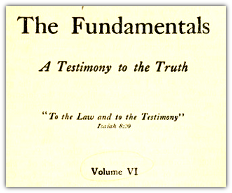Faith and Reason in Christian Perspective: Jesus on Faith and Reason
 Read the series so far.
Read the series so far.
Christians are not immune from thinking independently of God. We do it when we think we can circumvent clear passages which we would rather say something other than what they say.
We can see this in two episodes in the life of our Lord.

 From
From 

 (
(
Discussion